Key Takeaways:
There are numerous Pinterest alternatives available in 2025, each catering to different audiences, from professional designers to lifestyle enthusiasts.
Popular platforms like Instagram, Behance, and Dribbble focus on creative and professional content, while platforms like We Heart It and Mix are ideal for casual inspiration.
Evaluating an alternative requires assessing features, audience engagement, security, monetization options, and platform reliability.
Free platforms and offline-access apps, such as Walli, make content discovery accessible for everyone.
For businesses or entrepreneurs aiming to build their own visual discovery platform, partnering with JPLoft can help transform your idea into a scalable, interactive, and AI-powered app tailored to your audience’s needs.
Looking for Pinterest alternatives that offer the same visual inspiration, creativity, and discovery experience? You’re not alone.
While Pinterest remains one of the most popular platforms for curating ideas, many creators, designers, and businesses are now exploring alternative apps like Pinterest that better suit their evolving needs.
From improved privacy options to niche-focused communities, there’s a growing demand for fresh visual discovery spaces.
But is there an alternative to Pinterest that truly matches its versatility and user engagement?
In this guide, we’ll explore the top Pinterest alternatives 2025, discover what makes them unique, and help you decide which platform is the perfect fit for your creative journey.
What Is Pinterest? Key Market Stats and Growth Overview
Pinterest is one of the most influential visual discovery and bookmarking platforms, allowing users to find, save, and share ideas through engaging images, videos, and collections.
Launched in 2010, it quickly evolved into one of the most loved platforms for creators, designers, and small businesses to showcase their inspirations and connect with audiences who share similar tastes.
Unlike traditional social platforms focused solely on networking, Pinterest is built around visual discovery, ideas, and creative exploration.
The app’s intuitive interface and personalized experience make it stand out for its social media app features, including AI-driven content recommendations, image-based search tools, and organized “pin boards” that help users categorize and revisit ideas easily.
Over the years, these capabilities have made Pinterest a go-to visual search engine for lifestyle, design, and eCommerce inspiration.
Over time, Pinterest has not only redefined digital inspiration but has also carved its space among the best social media apps for visual storytelling and brand marketing.
From DIY enthusiasts and fashion bloggers to global companies, millions use Pinterest daily to turn ideas into real-world actions.
Key Market Stats That Define Pinterest’s Global Reach
-
User Base: As of Q2 2025, Pinterest reported 578 million monthly active users globally, marking an 11% year-over-year increase.
-
Ad Reach: The platform’s advertising audience exceeds 280 million, offering brands a valuable visual commerce channel.
-
Revenue Growth: In 2024, Pinterest achieved a record $3.646 billion in annual revenue, reflecting a 19% increase from the previous year.
-
Engagement: Over 85% of weekly users use Pinterest for inspiration before making a purchase decision.
-
Market Presence: Pinterest ranks among the top 10 social media platforms globally, with high engagement in the U.S., Europe, and emerging markets.
With such scale and engagement, it’s easy to see why Pinterest continues to dominate the visual content space. However, as user preferences evolve and more niche-focused or feature-rich platforms emerge, the demand for alternatives to Pinterest is stronger than ever.
Why Are People Searching for Alternatives to Pinterest?
Pinterest may still be a favorite for idea discovery, but it doesn’t fulfill everyone’s creative or professional goals anymore.
As content trends evolve, many users and brands are actively exploring alternatives to Pinterest that offer better control, flexibility, and modern features.
Let’s explore the top four reasons behind this growing shift.
1] Limited Monetization and Branding Opportunities
While Pinterest allows creators to showcase products and affiliate links, it doesn’t provide enough avenues for personal branding or direct monetization.
Independent creators, small businesses, and influencers often seek platforms that give them ownership of their audiences.
As a result, many are considering how to create a social media app tailored to their niche, one that supports native monetization, ad-free engagement, and custom brand spaces.
Yet, launching such a platform is not without hurdles. Developers face several social media app development challenges, including building a loyal user base and maintaining app performance while scaling.
These limitations drive many creators to explore established alternative apps like Pinterest that deliver the creative freedom and audience connection they’re missing.
2] Overcrowded and Algorithm-Driven Feed
Pinterest’s algorithm heavily favors popular pins, which can make unique or new content harder to surface. This repetitive experience frustrates users seeking diversity or originality.
Pinterest alternative apps that focus on curated categories, personalized feeds, or community-based sharing appeal to users looking for something more authentic and less algorithm-dependent.
Such platforms highlight the growing value of creative ecosystems designed around personalization rather than mass trends, giving users space to express themselves freely.
3] Rising Advertising Costs and Platform Competition
Pinterest’s paid promotions are effective but increasingly expensive for small and medium businesses. The rising social media app development cost also adds to the challenge for startups trying to compete in the visual discovery market.
These economic pressures push brands and creators toward free Pinterest alternatives that prioritize organic reach over aggressive ad spending, helping them engage audiences without high operational expenses.
4] Demand for Privacy and Simplicity
With concerns about data tracking and excessive automation, many users are seeking AI-free Pinterest alternatives that prioritize privacy and genuine user interaction.
The trend toward minimalistic, niche-driven platforms shows users want creative freedom without being overwhelmed by algorithms or targeted ads.
Such changes indicate that today’s audience values authenticity, independence, and innovation, pushing the rise of new key Pinterest alternatives that better align with user expectations and creative expression.
Best Pinterest Alternatives 2025
Discover the top Pinterest alternatives in 2025 that combine creativity, inspiration, and visual discovery. Explore 17 platforms perfect for curating ideas, sharing content, and fueling your imagination.
1. Instagram
Instagram is a global social media platform known for visual storytelling. Its focus on Reels, Explore tabs, and curated feeds reflects the latest social media app development trends, making it a strong alternative app like Pinterest for discovering creative content.
Features:
-
Photo and video sharing with captions and hashtags
-
Curated Explore tab for trending content
-
Saved collections for personal curation
-
Business and creator tools for branding
Available Platforms: iOS, Android, Web
Pricing: Free, with optional in-app promotions
2. Behance
Behance is a professional network for creatives, allowing artists and designers to showcase portfolios. It is one of the best Pinterest alternatives and provides insight into how to design a social media app, as users can study its UI/UX for inspiration when building visually-driven platforms.
Features:
-
Portfolio creation and project showcasing
-
Community feedback and appreciation tools
-
Job posting and hiring features for creatives
-
Integration with Adobe Creative Cloud
Available Platforms: Web, iOS, Android
Pricing: Free
3. Dribbble
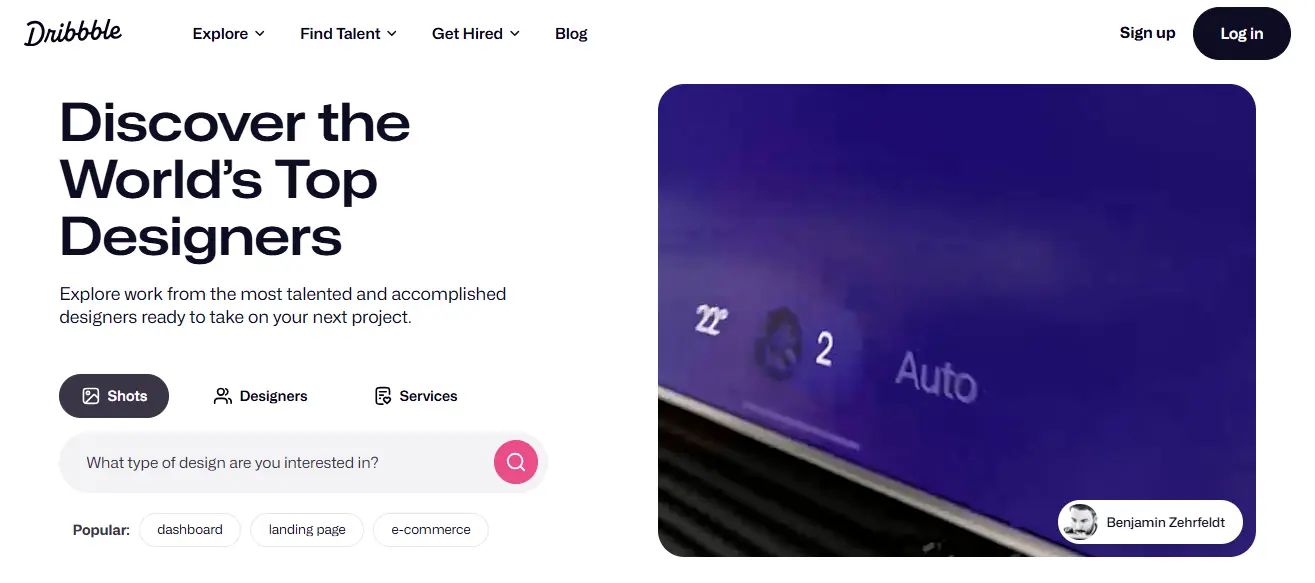
Dribbble is a designer-focused platform highlighting UI/UX, illustrations, and web design projects. As an apps similar to Pinterest option, it helps designers and developers understand mobile app design strategies for creative and visually appealing platforms.
Features:
-
High-quality design project showcases
-
Job boards for freelance and full-time opportunities
-
Pro accounts with advanced project analytics
-
Community engagement via “Shots” and comments
Available Platforms: Web
Pricing: Free basic, Pro accounts starting at $5/month
4. Mix (formerly StumbleUpon)
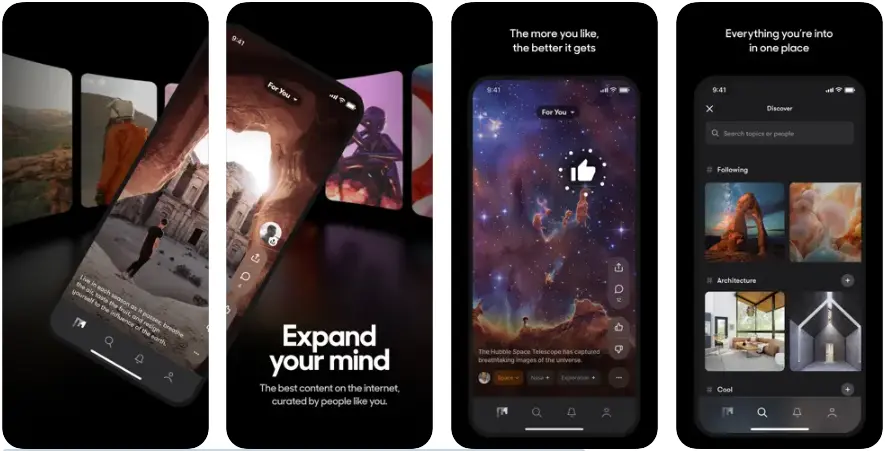
Mix lets users discover content across the web, saving articles, images, and videos. This Pinterest alternative app emphasizes personalized recommendations, demonstrating the impact of AI in social media for content discovery and user engagement.
Features:
-
Personalized content feed based on interests
-
Collection creation and sharing
-
Bookmarking of articles, videos, and images
-
Social integration for collaborative discovery
Available Platforms: iOS, Android, Web
Pricing: Free
5. We Heart It
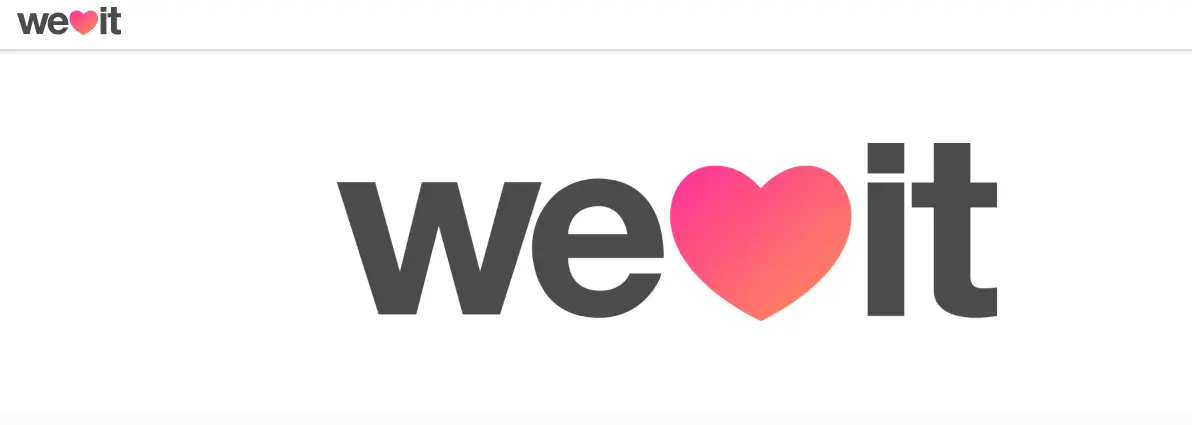
We Heart It is a visually-driven platform for images, fashion, and lifestyle inspiration. As one of the free Pinterest alternatives, it captivates users with its engaging content and community-focused features, making image discovery fun and interactive.
Features:
-
Visual feed with hearting/favoriting system
-
Collections and boards for organizing content
-
Inspirational quotes and images
-
Mobile-friendly and easy to share
Available Platforms: Web
Pricing: Free
6. Flickr
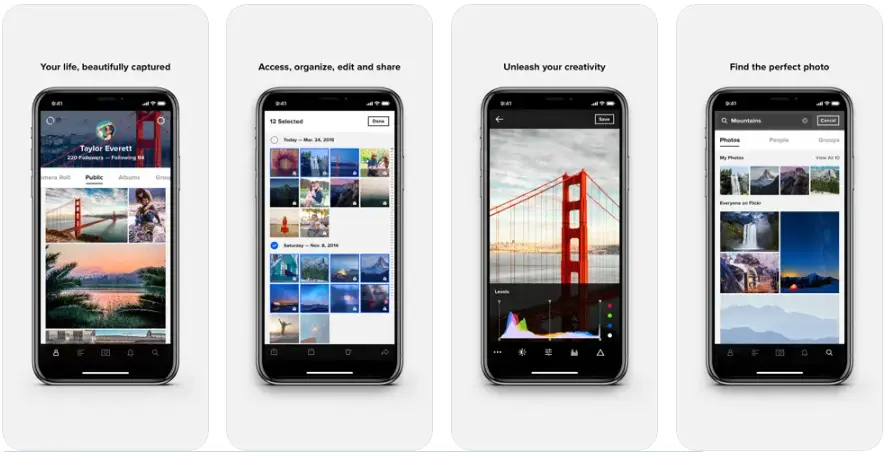
Flickr is a photo-sharing platform catering to photographers and hobbyists. Recognized as an app like Pinterest, it stands out for its reliable performance, seamless high-resolution image uploads, and user-friendly browsing experience.
Features:
-
High-quality photo storage and sharing
-
Album and collection organization
-
Community groups and discussion forums
-
Licensing options for creative works
Available Platforms: Web, iOS, Android
Pricing: Free, Pro starting at $7.99/month
7. Designspiration
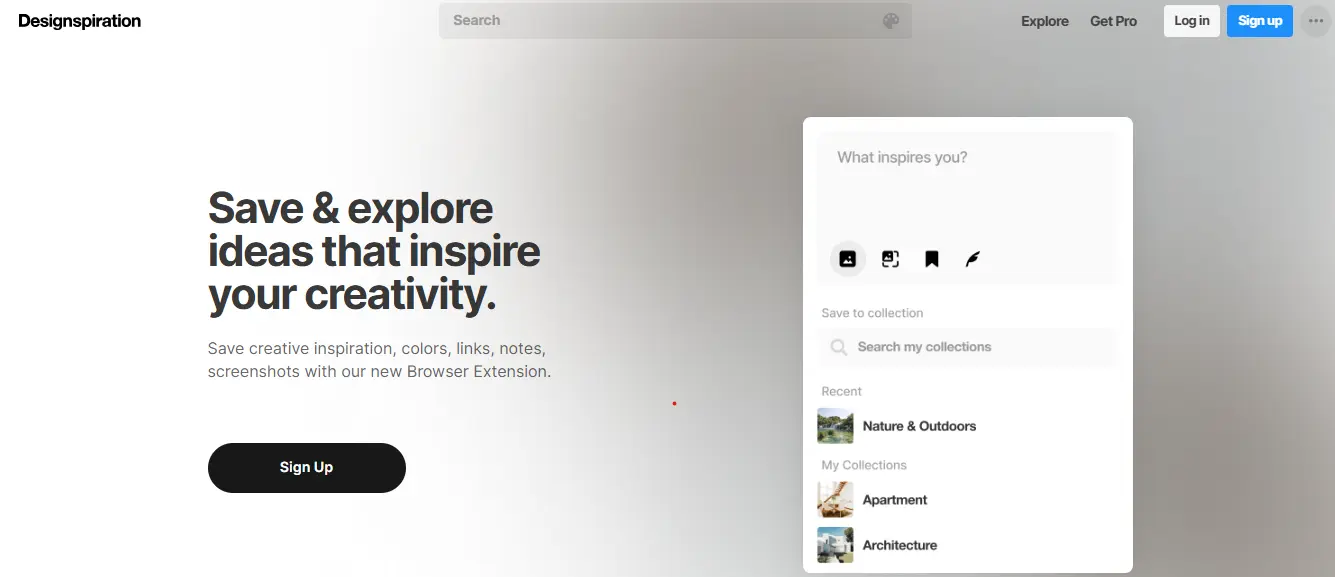
Designspiration focuses on design and visual creativity. It is one of the key Pinterest alternatives and can serve as a reference for entrepreneurs wanting to create an app centered around creative discovery and community curation.
Features:
-
Color palette search for design inspiration
-
Pinning and bookmarking creative works
-
Categorized boards for easy browsing
-
Regularly updated trending content
Available Platforms: Web
Pricing: Free
8. Pearltrees
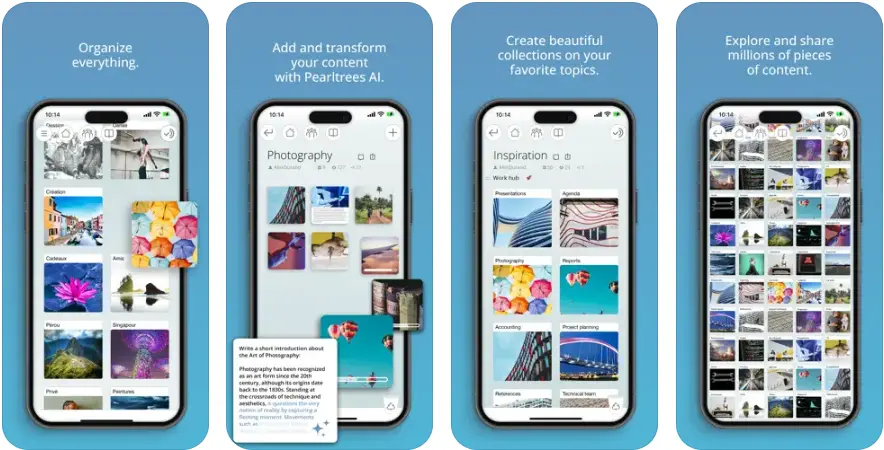
Pearltrees helps users visually organize web content, images, and notes into “pearls.” It’s one of the best Pinterest alternatives for users who love structure. Developers studying its architecture can learn from its approach to app scalability and integrations often discussed among mobile app development companies.
Features:
-
Visual bookmarking with folders and subfolders
-
Collaboration features for group curation
-
Cloud syncing across devices
-
Tagging and content organization tools
Available Platforms: Web, iOS, Android
Pricing: Free basic plan, Premium from $2.99/month
9. FoodGawker

FoodGawker is a visual recipe-sharing community, a top Pinterest alternative for food lovers and bloggers. It’s a great example for startups exploring ideas to build an AI app that recommend recipes or designs based on visual similarity and user preference.
Features:
-
Curated collection of food photography
-
Direct blog linking for recipes
-
Easy navigation through tags and filters
-
Visual inspiration for chefs and home cooks
Available Platforms: Web
Pricing: Free
10. Houzz
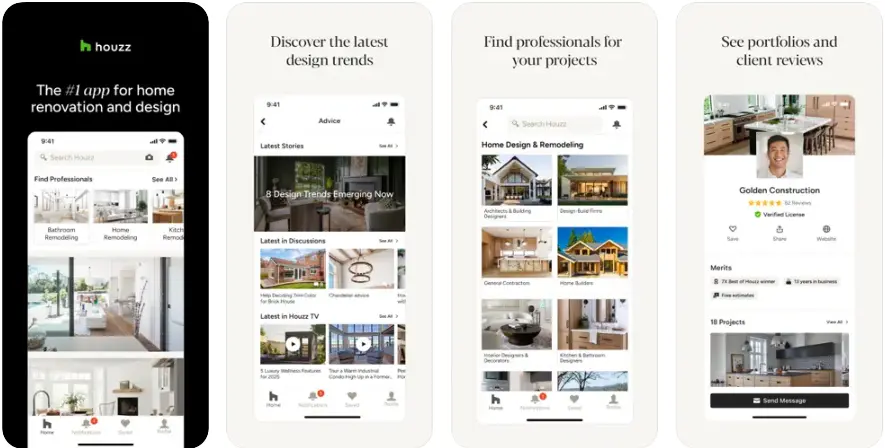
Houzz is a leading platform for home design and décor inspiration. Often listed among apps similar to Pinterest, it demonstrates what’s possible when you combine creativity with robust development, often supported by a reliable mobile app development company in the USA.
Features:
-
Huge catalog of interior design photos
-
Marketplace for furniture and materials
-
AR tools for room visualization
-
Professional directory for architects and designers
Available Platforms: iOS, Android, Web
Pricing: Free
11. DeviantArt
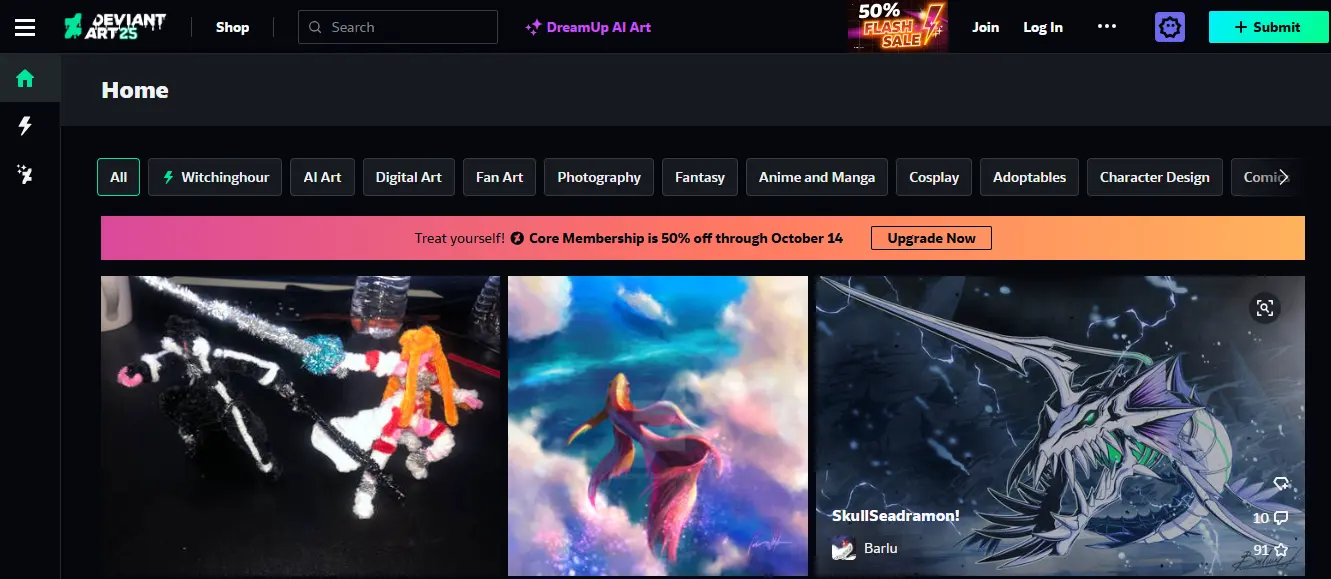
DeviantArt remains a creative powerhouse, featuring millions of digital artworks. As one of the leading Pinterest alternatives, it blends art-sharing with community interaction, reflecting strong social media app maintenance standards for a smooth and engaging user experience.
Features:
-
Art sharing and critique features
-
Member galleries and group communities
-
NFT and digital art marketplaces
-
Mature content filters and member controls
Available Platforms: Web
Pricing: Free, Core membership starts at $3.95/month
12. Tumblr
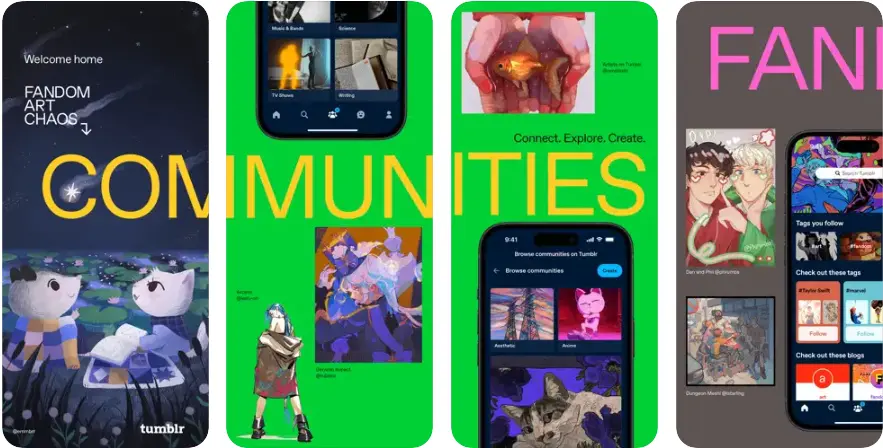
Tumblr is a blogging and social sharing site where users post visuals, text, GIFs, and more. It’s among the best alternatives to Pinterest, especially for microbloggers exploring how to get your social media app approved on the iOS store, since Tumblr’s rebrand journey offers valuable lessons in app compliance and platform optimization.
Features:
-
Multi-format content sharing (text, photo, video, GIF)
-
Tag-based content discovery
-
Reblogs and engagement tools
-
Customizable themes and layouts
Available Platforms: iOS, Android, Web
Pricing: Free, optional ad-free subscription at $4.99/month
13. InspireUplift
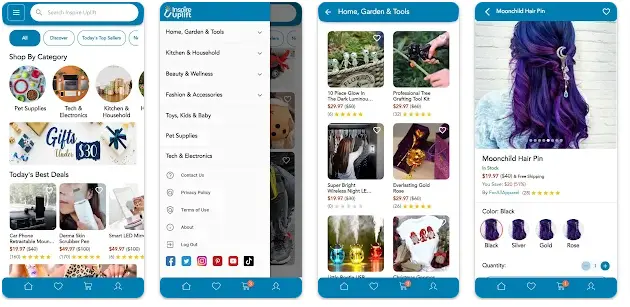
InspireUplift merges eCommerce and inspiration, making it one of the top Pinterest alternatives for lifestyle shopping and DIY enthusiasts. Its clean, user-friendly design helps brands seamlessly connect content discovery with purchasing experiences.
Features:
-
DIY and creative product discovery
-
ECommerce integration with product links
-
Trending gift and home décor suggestions
-
Interactive browsing experience
Available Platforms: Web, Android
Pricing: Free
14. 500px
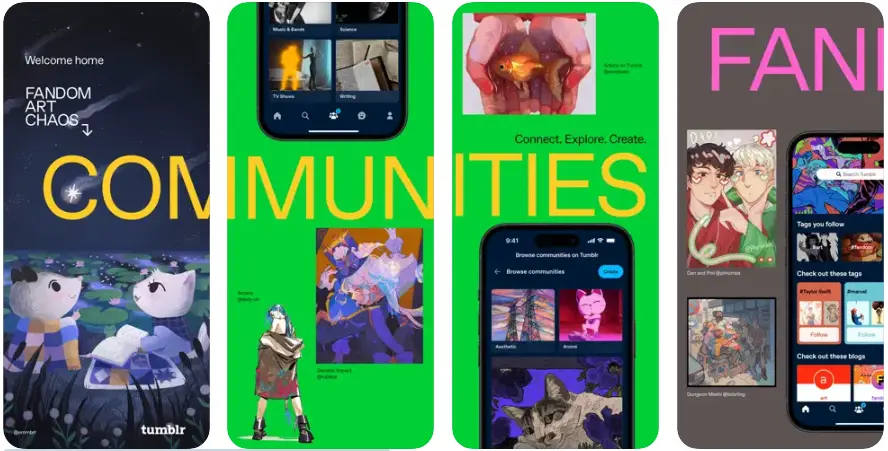
500px is a platform for photographers to showcase and sell their best work. It’s a Pinterest alternative app loved by professionals, offering a high-performance space for creative networking and visual storytelling.
Features:
-
Photo portfolios and licensing options
-
Community voting and ranking system
-
Tutorials and photography challenges
-
Stats and analytics for professionals
Available Platforms: Web, iOS,
Pricing: Free, Pro from $6.49/month
15. ArtStation
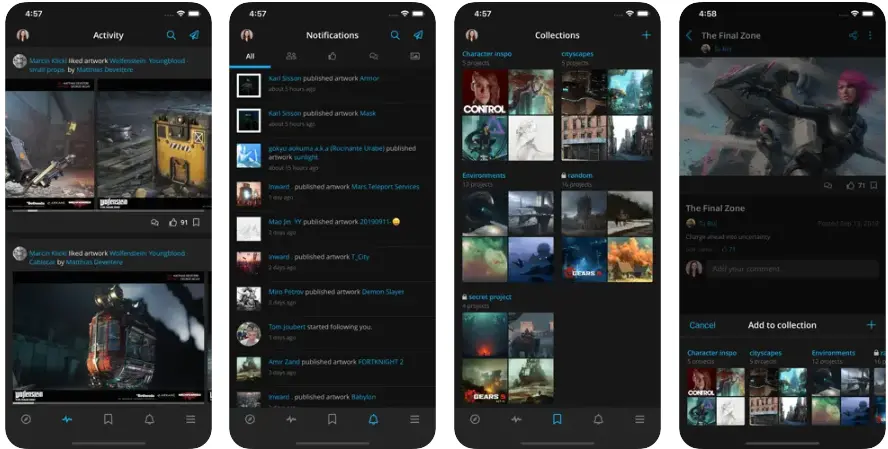
ArtStation is the go-to network for professional artists, game designers, and illustrators. Ranked among the best Pinterest alternatives of 2025, it’s perfect for those seeking creative discovery and deeper community engagement.
Features:
-
High-quality artist portfolios
-
Marketplace for digital assets
-
Job listings for studios and professionals
-
Integration with 3D and VR tools
Available Platforms: Web, iOS, Android
Pricing: Free, Pro starting at $6.99/month
16. Hometalk
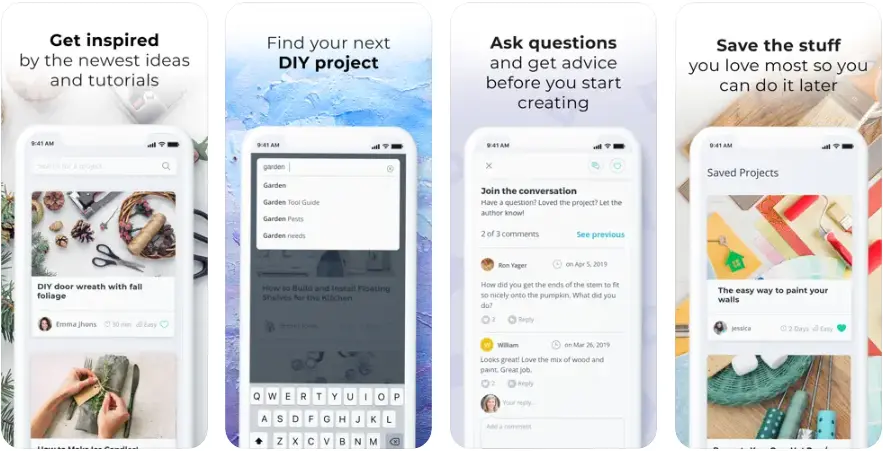
Hometalk focuses on DIY, décor, and home improvement ideas. As one of the free Pinterest alternatives, it’s loved by creators and homeowners alike. It also highlights how innovators integrate modern compliance and approval strategies to ensure smooth app performance and user trust.
Features:
-
DIY tutorials and visual guides
-
Home décor and renovation project sharing
-
Comment and community support system
-
Personalized idea feeds
Available Platforms: iOS, Android, Web
Pricing: Free
How to Choose the Best Pinterest Alternative in 2025?
Selecting the right Pinterest alternative depends on understanding your goals, content preferences, and the type of audience you want to engage. With so many best Pinterest alternatives 2025 available, it’s essential to evaluate each platform carefully to make the most of your creative or business endeavors. Here’s a practical guide to help you choose wisely.
1. Identify Your Purpose and Audience
Before exploring any platform, clarify your primary goal. Are you seeking visual inspiration, professional networking, DIY ideas, or eCommerce integration? Different alternative apps like Pinterest cater to unique audiences.
For instance, platforms like Behance and Dribbble are ideal for professional designers, while We Heart It or Mix appeal to lifestyle enthusiasts.
Understanding your audience ensures that your content reaches the right people and maximizes engagement.
2. Evaluate Content Features and Customization
The availability of features such as boards, collections, AI-powered recommendations, or collaborative spaces is crucial. Some platforms excel in curation tools, while others provide enhanced analytics for creators.
If you’re a business owner or aspiring entrepreneur, exploring how to start a social media business on these platforms can help you design a strategy for growth, engagement, and brand visibility.
3. Consider Platform Reliability and Security
Your chosen alternative must provide a secure environment for your content. Features like privacy settings, reporting tools, and moderation policies are essential, especially for platforms that host user-generated content.
Working with a trustworthy AI app development company ensures that advanced recommendation engines and AI tools are integrated without compromising security or user trust.
4. Pricing and Monetization Options
While many alternatives are free, premium plans may offer better storage, advanced analytics, or ad-free experiences.
Consider whether the platform allows creators or businesses to monetize content directly.
Platforms offering robust monetization strategies can significantly impact how effectively you turn your creative ideas into sustainable ventures.
5. Check Community and Engagement Levels
A vibrant and active community is one of the most critical factors. Platforms with regular interaction, commenting systems, and collaborative boards increase exposure and engagement, giving you more opportunities to connect with like-minded creators or potential customers.
By evaluating best Pinterest alternatives 2025 through these lenses: audience, features, security, monetization, and community, you can choose the platform that aligns perfectly with your creative or business goals.
Making an informed choice now can save time and help you focus on what truly matters: sharing, discovering, and inspiring.
Partner with JPLoft, and Build Your App like Pinterest
Are you inspired by the creative potential of Pinterest and its alternatives? It’s time to transform that inspiration into your own visual discovery platform.
By partnering with JPLoft, a leading social media app development company, you can create a highly interactive and scalable app tailored to your audience’s needs.
Our expert team specializes in designing apps that combine stunning visuals, seamless navigation, and AI-driven recommendations to keep users engaged.
From ideation and UI/UX design to backend architecture and performance optimization, we handle every aspect of development.
Whether you aim to target niche communities, lifestyle enthusiasts, or professional creators, building your own Pinterest-like app can open new opportunities for monetization, engagement, and brand growth.
With JPLoft, your idea becomes a reality, a robust, user-friendly, and innovative platform ready to compete in today’s dynamic digital landscape.
Conclusion
Exploring Pinterest alternatives allows creators, businesses, and enthusiasts to discover platforms that align with their goals, whether it’s visual inspiration, professional networking, or niche content curation.
From globally recognized apps like Instagram and Behance to emerging platforms like Juxtapost and Designspiration, there’s a wide array of options catering to every creative need.
Choosing the right alternative involves assessing features, audience, security, monetization options, and community engagement. By understanding these factors, you can ensure your content reaches the right audience while maximizing engagement and growth.
With the right platform, users can not only find inspiration but also transform their creative ideas into impactful digital experiences.
FAQs
Yes. There are numerous alternatives to Pinterest catering to different needs, including Instagram, Behance, Dribbble, Mix, Juxtapost, and many more. Each platform offers unique features for visual discovery, content curation, or professional networking.
The best Pinterest alternatives 2026 include Instagram, Behance, Dribbble, Mix, Juxtapost, We Heart It, Designspiration, Houzz, and others. The choice depends on your creative goals, audience, and the type of content you want to explore or share.
Yes, several platforms are free to use, such as We Heart It, Mix, Juxtapost, and Designspiration, offering most of their core features without requiring paid subscriptions.
Absolutely. Many alternatives support branding, marketing, and content monetization, allowing businesses and creators to reach targeted audiences effectively.
Yes. Apps like Walli offer offline access to curated visual content, making it possible to browse inspiration even without a continuous internet connection.





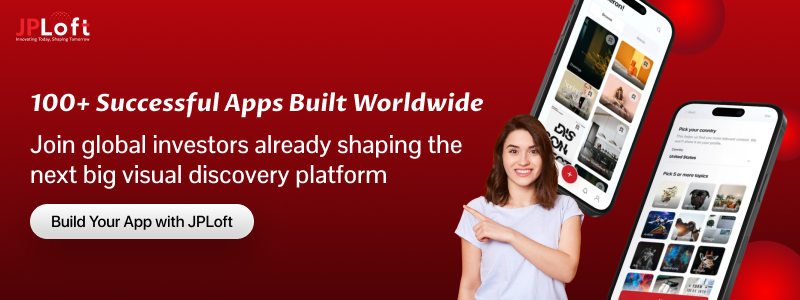
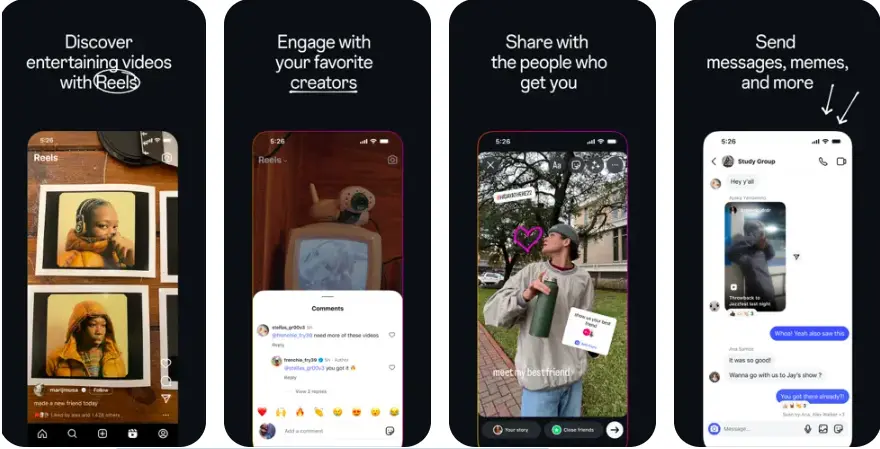
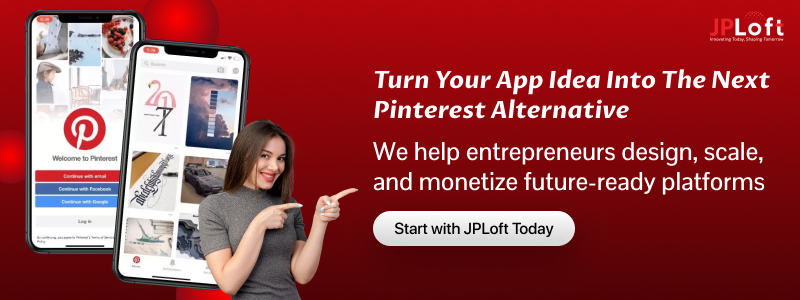


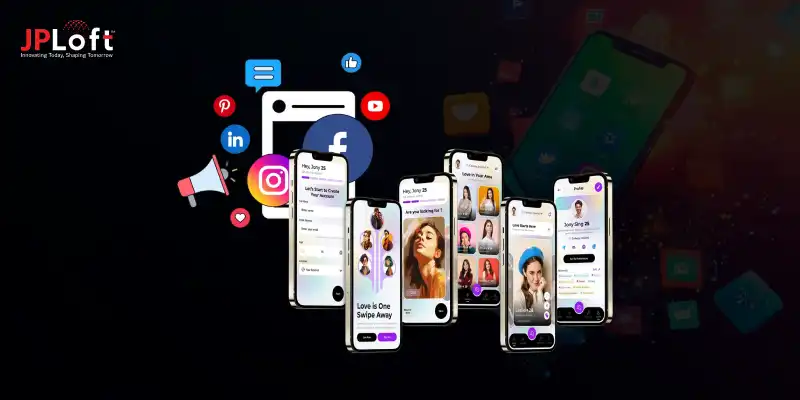
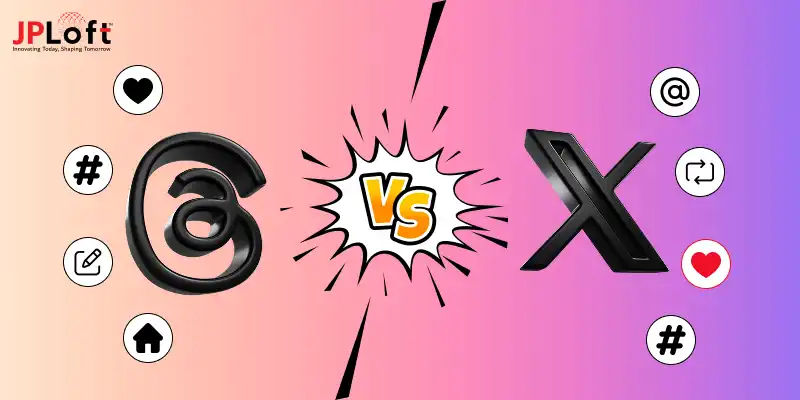


Share this blog